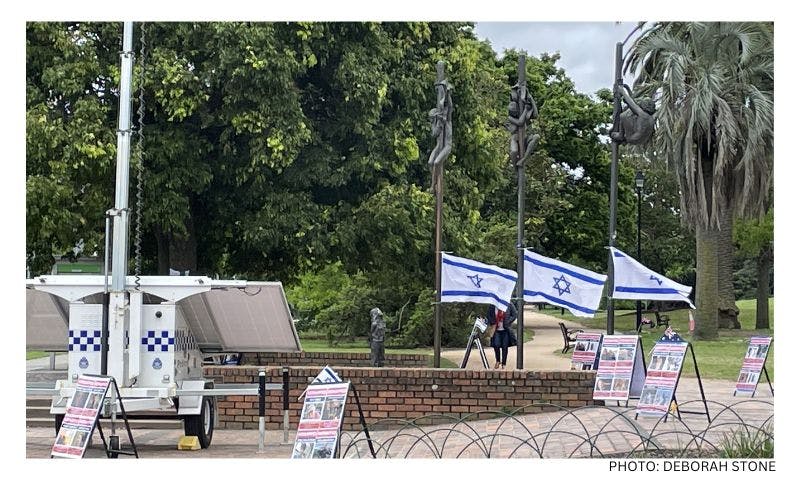Published: 30 November 2020
Last updated: 4 March 2024
WHEN DONALD TRUMP was defeated by Joe Biden, fireworks didn’t light up the sky of the West Bank and church bells didn’t ring out like in the capitals of Europe. But the celebratory mood among Palestinian leaders was nonetheless palpable.
"Congratulations to the American people for an historic & inspiring elections,” tweeted Husam Zomlot, the Palestinian ambassador who had to decamp from the US to London after the Trump administration shuttered the Palestine Liberation Organisation's mission in Washington, DC.
“I sense the excitement of those who aspire to a just and lasting peace in Palestine. Engagement based on mutual respect, freedom, justice and equality must be the way forward."
Indeed, perhaps no national leadership suffered as much marginalisation and humiliation at the hands of the Trump administration as that of Palestinian President Mahmoud Abbas. The Trump administration upended decades of Palestinian-Israeli peace making Orthodoxy, with a long list of slights: there was the relocation of the US embassy from Tel Aviv to Jerusalem, squelched funding for Palestinian institutions, the Trump “deal of the century” peace plan giving a seeming green light for Israel to unilaterally annex wide swathes of the West Bank, and the appointment of an American Jewish patron of the Israeli settlements as US ambassador.
“This has been one of the most dangerous and destructive periods in history,’’ Hanan Ashrawi, a member of the PLO’s executive committee told The Jewish Independent. “We’ve never seen such a bashing of the Palestinians. We felt [Trump] wanted to crush us. Hopefully, the end of this era will be a very significant development.”
To be sure, now that the post-election inebriation has died down, Abbas and the Palestinian Authority face several daunting - and potentially conflicting - challenges.
[gallery columns="1" size="large" ids="39821"]
On the one hand, it will seek to reengage with the new US administration and potentially explore the potential for talks with Israel - even as many Palestinians have tired of decades of on and off talks that have left with limited autonomy amid Israel’s military occupation.
At the same time, public sentiment wants Palestinian leaders to resolve the rift between Hamas and Abbas’ Fatah party, and desperately wants elections.
Those tensions came to a head when, just a few days after Biden’s victory became clear, Abbas’ liaison to the Israeli government, Hussein a-Sheikh, informed Israel of a resumption in security ties between the Palestinian police and the Israeli army. Abbas had cut coordination with the IDF in May and declared agreements with Israel null and void to protest Netanyahu’s push to annex parts of the West Bank.
Resuming the security coordination was a goodwill gesture by Abbas to the new administration as a dialogue gets going on reestablishing ties, and perhaps starting a new chapter in diplomacy. “We are waiting for the Americans to start a new process with a new paradigm,’’ said Ashraf Al Ajrami, an aide to Abbas, in an interview with Israel’s i24 News Channel.
Just as critically, the reversal prompted Israel to unfreeze customs revenue collected on behalf of the Palestinian Authority, whose finances have been stretched in recent months. The decision to renew the broadly unpopular security cooperation with Israel extinguished the latest round of reconciliation talks between Fatah and Hamas.
In addition, Abbas’ political allies and Palestinian civil society in the West Bank accused the Palestinian leader as unilaterally reversing course without getting the approval of the broader PLO leadership.
Dalal Iriqat, the daughter of longtime Palestinian negotiating chief, Saeb Erekat, who passed away earlier in November after contracting the coronavirus, penned an op-ed in the Al Quds newspaper, accusing Abbas of acting in a vacuum and likened the move as an unconditional surrender.
There’s a pattern of behaviour that is extremely destructive. Like always clearing every position with Israel first. Relating to the Palestinians through Israel - Hanan Ashrawi
“The PLO took a serious decision back in May when they declared all the treaties null and void,’’ Dalal Iriqat told Plus 61JMedia. But now, Abbas has “just come and reverse those decisions randomly” without consideration of public sentiment or explaining his rationale.
“After Biden won, polarisation within the PLO has become more acute,’’ said Sam Bahour, a Palestinian-American businessman. “They are basically going down a list of all the things the US has demanded of them and rushing to appease the Biden administration before it even gets into the White House. A lot of people like me are thinking, isn’t that the mistake we made in Oslo: putting all our cards on the table to start?”
The division in the PLO pits, on one hand, Abbas and deputies who mediate relations with Israel, against former security chief Jibril Rajoub on the other. Rajoub has been leading talks to mend the 13-year rift with Hamas, which controls the Gaza Strip.
The reconciliation talks also involve negotiations over holding the Palestinians’ first general election in 14 years. Bahour and many other Palestinians believe that Abbas should put the Palestinian political house in order and revive democratic institutions before focusing on Israel.
“The majority of the public wants to have national unity and elections first. Abu Mazen [Abbas] is going against popular sentiment,’’ said Daoud Kuttab, a veteran Palestinian journalist based in Amman. Elections will unite Palestinians, and the PA will have more legitimacy. Abbas has a legitimacy problem.”
Kuttab said that the normalisation deals that Israel had reached with the United Arab Emirates, Bahrain and Sudan, as well as the flirtation with other Arab countries, weakens the Palestinians, who once could use the prospect of diplomatic ties with the Arab world as an asset. At the same time, he and other Palestinians argued that Abbas will be hard pressed be able to resume negotiations if there is no freeze on settlement expansion.
Abbas’s problem is that he’s myopically focused on negotiations. He’s been pushed into a corner. It’s not going back to status quo; it’s going back to status quo ante minus - Diana Buttu
Ashrawi acknowledged that the PA was on the brink of “collapse” financially before renewing ties with Israel and accepting the customs revenue, but she criticised Abbas for “rushing” to renew the security coordination.
She argued that after the Trump administration the Palestinians need a restart in their relations with the US, which suffers from Washington’s “total bias” toward Israel. The Palestinian leadership should no longer consent to using the US as the sole mediator for talks with Israel.
“There’s a pattern of behaviour that is extremely destructive. Like always clearing every position with Israel first. Relating to the Palestinians through Israel.’’
Diana Buttu, a former member of the Palestinian negotiating team, said President-elect Biden won’t unravel the Trump administrations pro-Israel measures so easily. Moreover, Abbas would be mistaken if he tries to resume negotiations from the point where they left off in 2014 under the Obama administration.
Instead, Abbas should be thinking about alternative strategies such as pressing for sanctions on settlements, pushing lawsuits in international courts, and encouraging non-violent civil disobedience.
“[Abbas’] problem is that he’s myopically focused on negotiations. He’s been pushed into a corner,’’ she said. “It’s not going back to status quo; it’s going back to status quo ante minus. He should be thinking what strategies that he should push not going back to negotiation, but to get Palestinian freedom.”
READ MORE
Cabinet authorises tax transfer to PA, minus pay-for-slay funds (Jerusalem Post)
The taxes and tariffs to be transferred to the PA amount to NIS 2.5 bn ($US700m).
Jordan's King Abdullah meets Abbas, calls for two-state solution (Jerusalem Post)
This was Abbas’s first trip abroad since the outbreak of the coronavirus pandemic earlier this year
PA informs Biden admin, European nations, ready to negotiate with Israel (Jerusalem Post)
"We call upon the new American leadership to intervene, as no progress in the peace process in the Middle East can be made without the US," al-Maliki stated
Photo: Palestinians in Ramallah protest against Israel's normalisation deal with UAE in August, 2020 (Abbas Momani/AFP)



